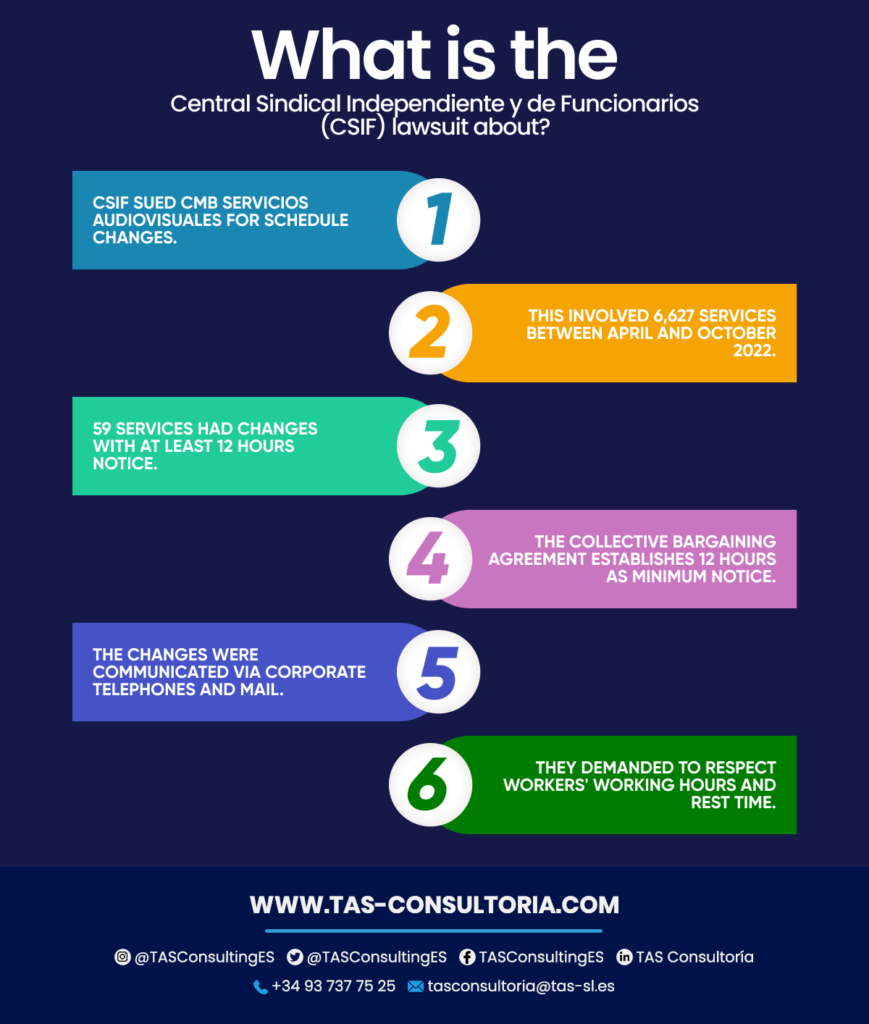
You ask yourself, how does the “availability bonus” influence your right to digital disconnection? In this article, we will explore this vital balance in a hyper-connected world. Find out more about this crucial topic and find harmony in your digital life – read on and find your balance!
The right to digital disconnection: a key element for occupational health
The right to digital disconnection is of vital importance in today’s technology-driven workplace. The proliferation of digital tools demands adequate regulation to ensure the mental health and well-being of workers.
This being so, this right has been framed in the Workers’ Statute in Article 20 bis. Confirming privacy in the use of digital devices and digital disconnection.
In this sense, compliance is not optional, but a legal mandate. It requires companies to ensure and respect digital disconnection during rest periods. However, this right has recently been the subject of controversy.
Especially, with the ruling of July 17, 2023 by the High Court of Justice of the Community of Madrid (TSJM). This measure has raised questions as to whether workers who receive an availability bonus maintain the right to digital disconnection. Or whether this right is significantly limited.
You may also be interested in: New labor reform in Spain 2021-2022
The availability bonus: the right to disconnection in danger?
To understand this issue, it is essential to understand what the “availability bonus” entails. This is a salary supplement that employees can choose to receive voluntarily. Therefore, employees must be available and reachable to receive calls or communications from the company outside their normal working hours. It is a demand in special situations that interrupts their digital disconnection.
In essence, if an employee accepts this bonus, does it mean that the company can contact him at any time during his rest periods? If so, is he/she obliged to be always available and to keep his/her digital devices active to receive communications from the company?
If this were the reality, not only would workers’ time off be reduced. Their rights to work-life balance and privacy would also be affected. However, the TSJM ruling seems to support this scenario.
As a result, this could jeopardize the right to digital disconnection for workers who receive an availability bonus.
You may also be interested in: Minimum Interprofessional Wage: Spain and the European Union
The facts and CSIF’s claim
Before examining the judgment, it is vital to understand the underlying facts in this relevant case. CSIF, a labor union, filed a lawsuit against CMB Servicios Audiovisuales. All due to a contract with RTVM that involved 6,627 services between April 4 and October 8, 2022. Of these, 59 services had to be performed with changes in schedules, notified at least 12 hours in advance.
The importance of this limit is key to the right to digital disconnection. These 12 hours are the minimum that the Collective Bargaining Agreement of the Audiovisual Production Industry establishes in advance to modify schedules.
These changes were communicated to workers via corporate phones or company emails. If they did not respond, they tried to contact their personal phones. If a worker declined the assignment, they looked for another available employee.
In view of this, CSIF demanded that Article 17 of the Collective Bargaining Agreement of the Audiovisual Production Industry be respected. And they also demanded that the workers’ rest or disconnection time be respected. During this time, their devices or means of communication must remain inactive in order not to receive work messages.
They also argued that the company had not demonstrated the existence of “force majeure or exceptional circumstances” to justify the schedule changes. However, the TSJM did not agree with this argument.
Need a condensed version? Have the crucial points of this measure at hand:

The availability bonus and the TSJM judgment
According to the Superior Court of Justice of Madrid, the alterations in schedules were carried out in exceptional circumstances. Since they occurred in only 0.89% of the 6,627 services during a period of 6 months. In addition, all the affected workers received an availability bonus, mentioned in Article 22 of the same Collective Bargaining Agreement.
This bonus rewards the employee’s acceptance of working hours that may exceed the legal limit. It also implies that workers must be available and reachable outside their working day if the needs of the service so require. There is no complete disconnection.
This supplement compensates for availability and greater dedication, without the right to receive additional compensation. Its value is 25% of the employee’s base salary.
Consequently, the TSJM ruling dismissed CSIF’s claim. Indicating that if a worker receives an availability bonus, he/she must be available, even if this implies interrupting his/her rest periods.
You may also be interested in: How can you register for Social Security?
The court recalls that this bonus is voluntary. That is, if an employee chooses to receive and collect it, he or she must also accept the consequences it entails. This ruling raises fundamental questions about how rights to digital disconnection are balanced. Especially in the modern work environment.
Remember, the balance between availability and disconnection is essential. Stay informed about your labor rights and the latest measures, subscribe to our library and don’t miss any updates!




Your email address will not be published .
Required fields are marked with *